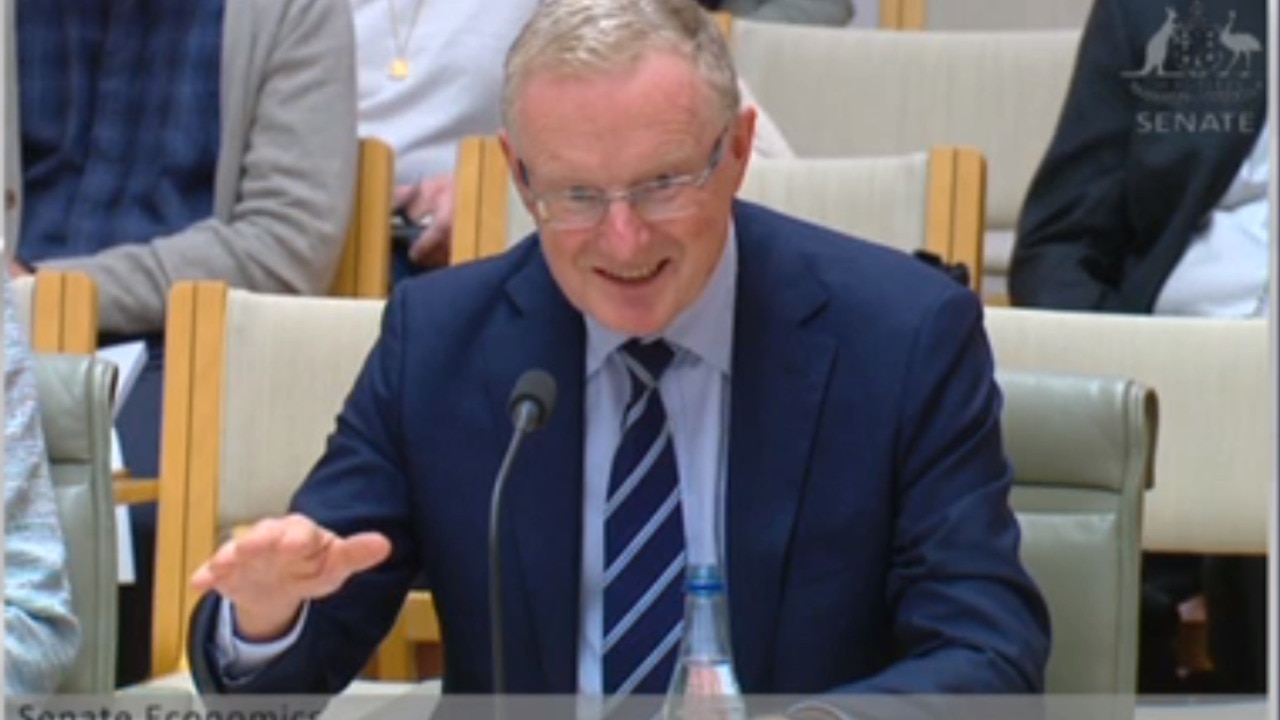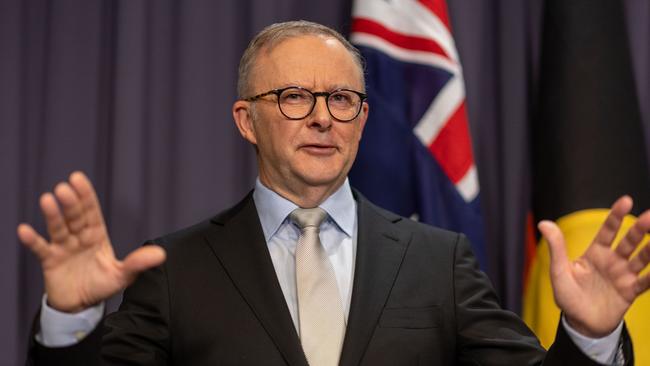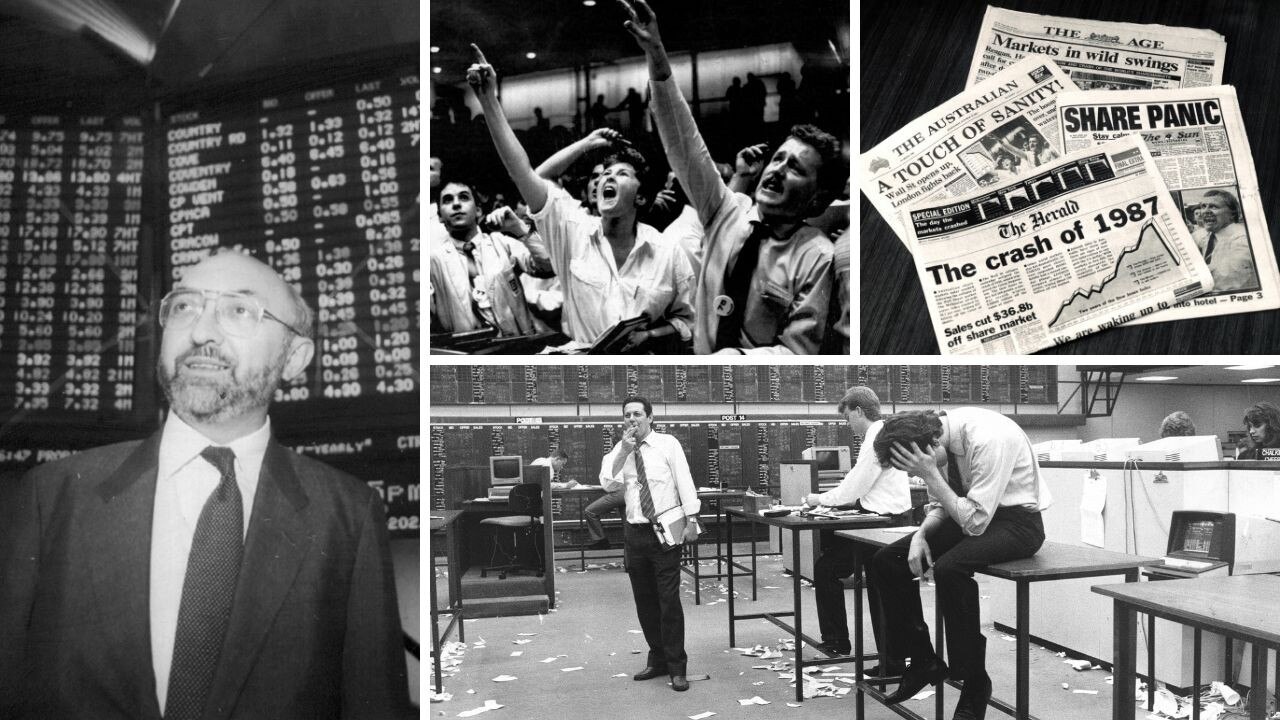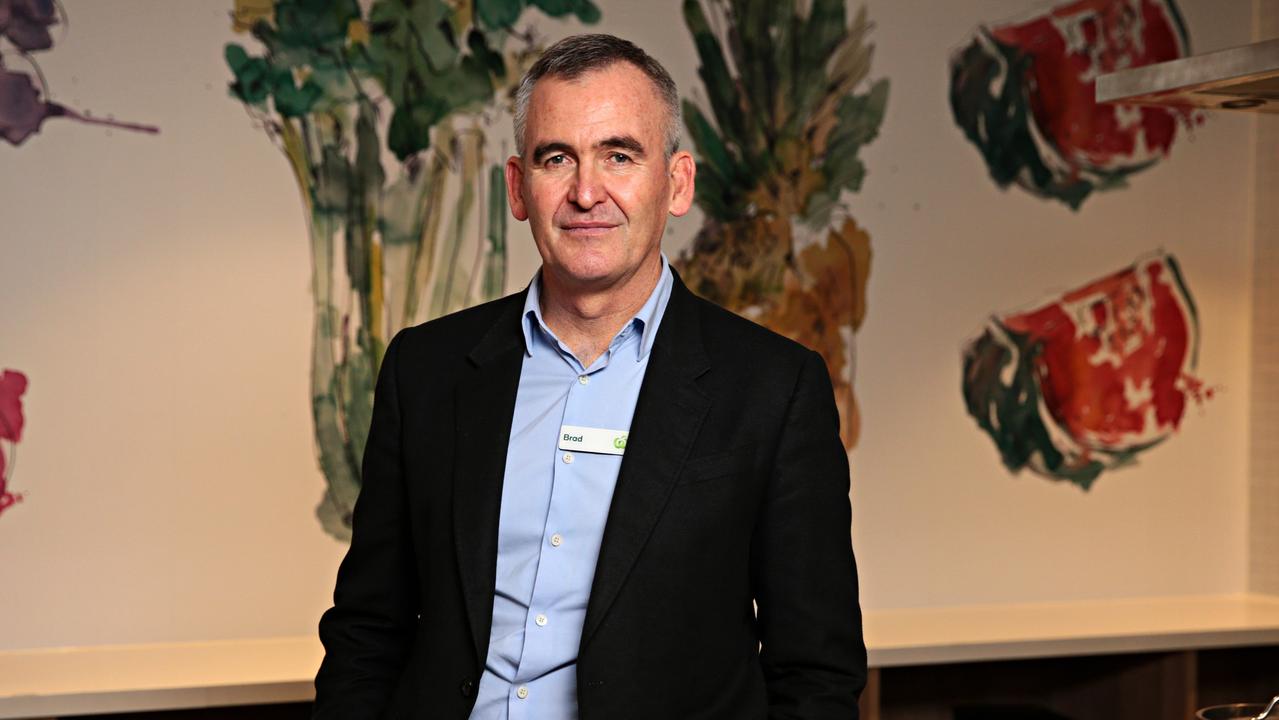A 2023 wages-prices spiral will lock in higher interest rates for longer
We could be heading into a wages-prices spiral that will lock in higher interest rates for longer, writes Terry McCrann

Terry McCrann
Don't miss out on the headlines from Terry McCrann. Followed categories will be added to My News.
Uh Oh.
Over the weekend NSW elected a government which has given the green light to wage increases of more than – in likely reality, much more than - 3 per cent a year to 500,000 state public servants.
And now the Albanese federal government is backing a wage rise of more like 8 per cent for 2m-plus workers on the minimum wage.
Welcome to the 2023 wages-prices spiral that will lock in higher interest rates and higher interest rates for longer.
The irony of this timing is that we are likely to see the Reserve Bank actually deliver its first pause in raising interest rates, at its meeting next Tuesday, since it started hiking back in May last year.
In the first instance, the RBA will be pausing to see what the quarterly inflation data at the end of April shows, ahead of its May meeting.
If that – much more statistically robust data than the monthly numbers we saw Wednesday - confirmed the falling inflation trend, it was going to be likely we would have seen another rate pause at that May meeting.
Then beyond that, it was going to be an exercise in seeing whether RBA governor Lowe’s ambition of slowly ‘encouraging’ inflation down towards the top of the 2-3 per cent RBA target range could be achieved without more punishing rate rises sending the economy into recession and unemployment soaring.
But now we’ve got these two curve balls.
The NSW government greenlighting 4 per cent-plus wage rises and the Federal government demanding an 8 per cent wage rise for low-paid workers.
I am making no judgment about whether or not these two groups adding to nearly 3m workers deserve or don’t deserve big pay rises.
Indeed, there’s a basic logic in arguing that the minimum wage should rise by the inflation rate.

After all, that’s exactly what has happened to pensions and other payments from government.
I’m simply here to tell you what the likely – what the all-but inevitable – consequences will be.
Those sorts of increases would spread across the workforce.
Simply, brutally, realistically, it would force punishing RBA rate hikes.
Maybe not immediately. Maybe we still get pauses in May and June (April is a done deal).
But after that.
Governor Lowe’s attempt to steer a course between not whacking the economy too brutally with big and quick rate rise, RBNZ and Fed-style, but still bringing inflation down over a two-year horizon was always going to be tricky.
As he has said repeatedly: “the path to achieving a soft landing remains a narrow one (my emphasis)”.
I’ve always thought it was so narrow as to be invisible.
But we are now facing the brutal reality that even Lowe will have to recognise he has no choice but to tackle potentially dangerously entrenched wage-driven inflation head-on.
Over the December year inflation hit 7.8 per cent. Arguably, probably, all Covid and Covid-insanity caused.
The – very partial – ABS monthly inflation Indicator suggested it fell to 7.4 per cent in the year to January, and then to 6.8 per cent in the year to February.
First big point: this is still way higher than the top of the 2-3 per cent RBA inflation range.
On even the best reading we still have a long, long, painful way to go.
Second big point: that was with wages generally rising just 3.3 per cent over the 2022 year.
Yes, every worker therefore went backwards. Inflation up 7.8 per cent, wages up 3.3 per cent – and even less in after-tax terms.
But the brutal reality is that trying to catch up; to get wage rises as high as inflation will only hurt those very workers.
Lost jobs, and punishing interest rates.
Watch this space.
Originally published as A 2023 wages-prices spiral will lock in higher interest rates for longer





